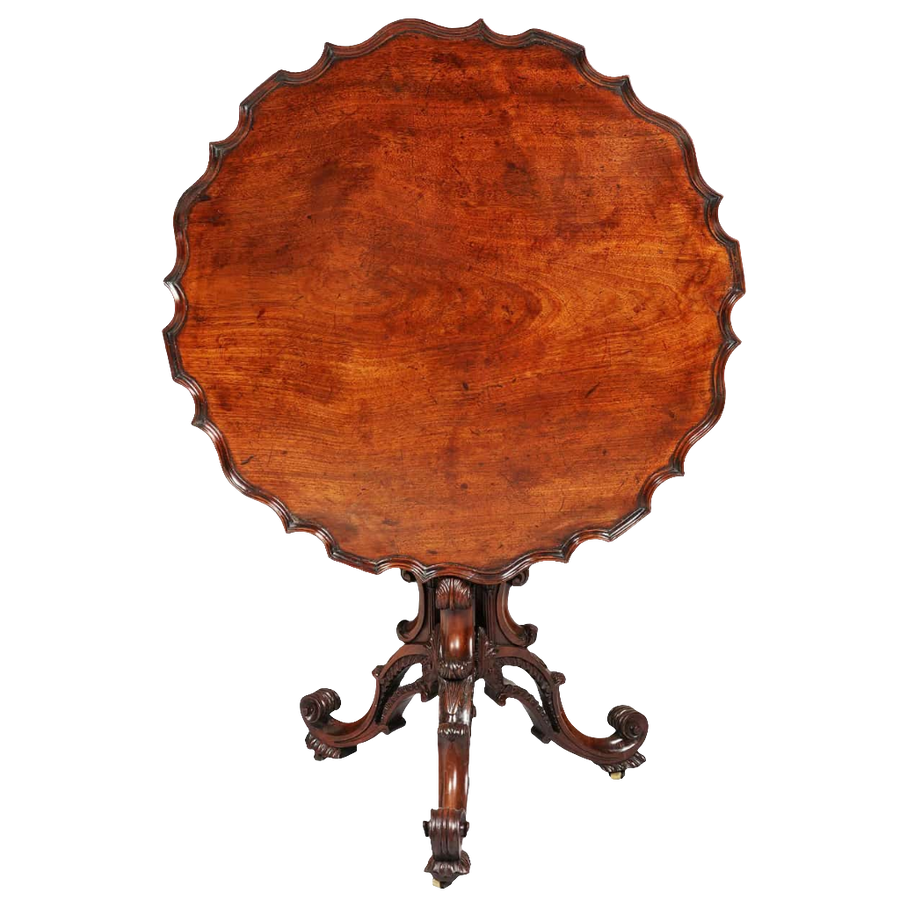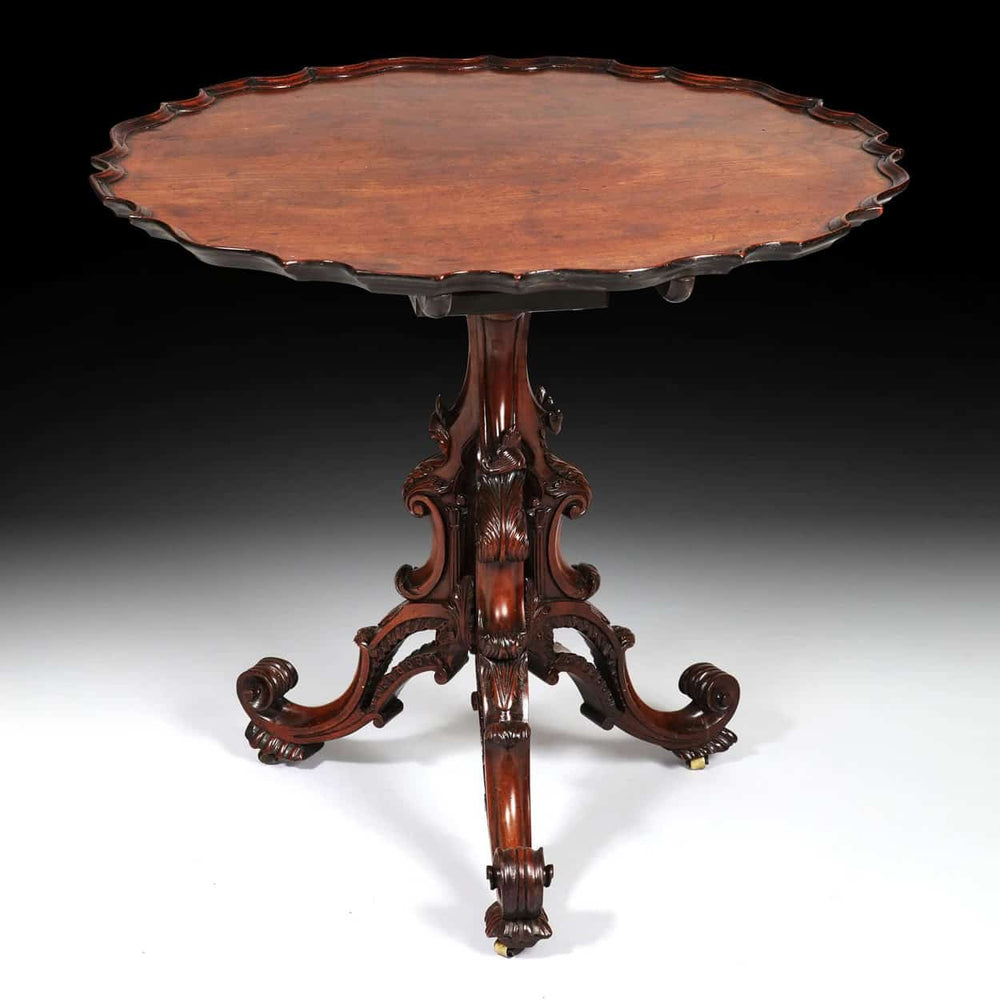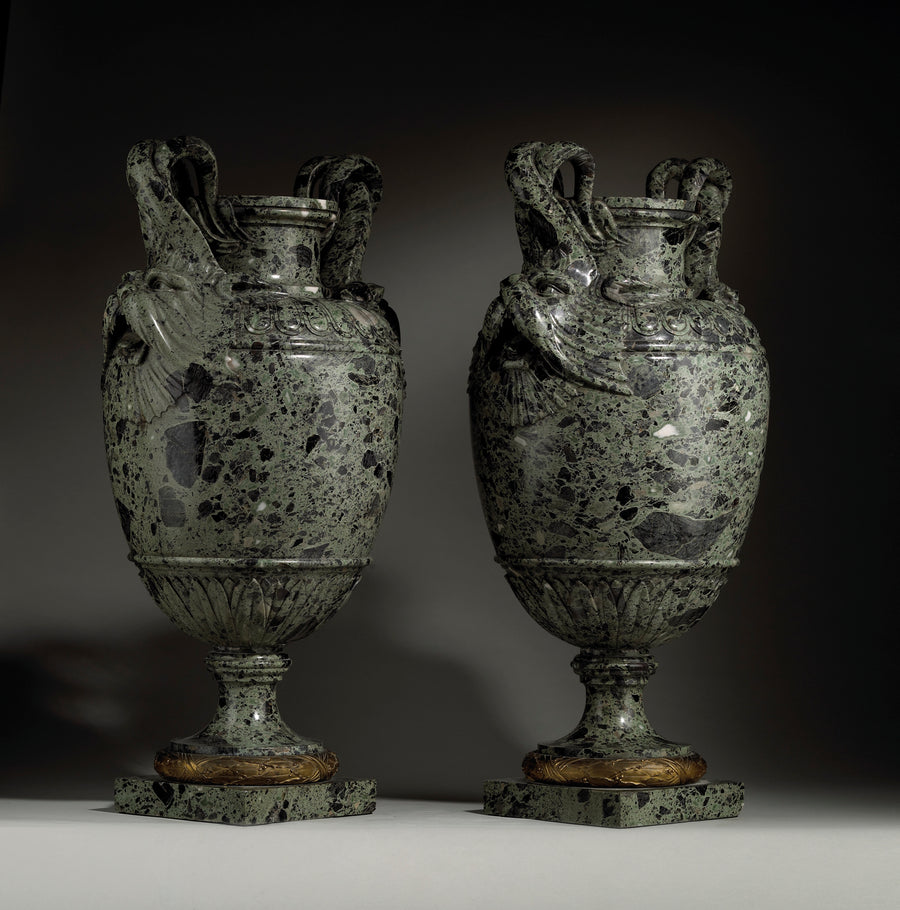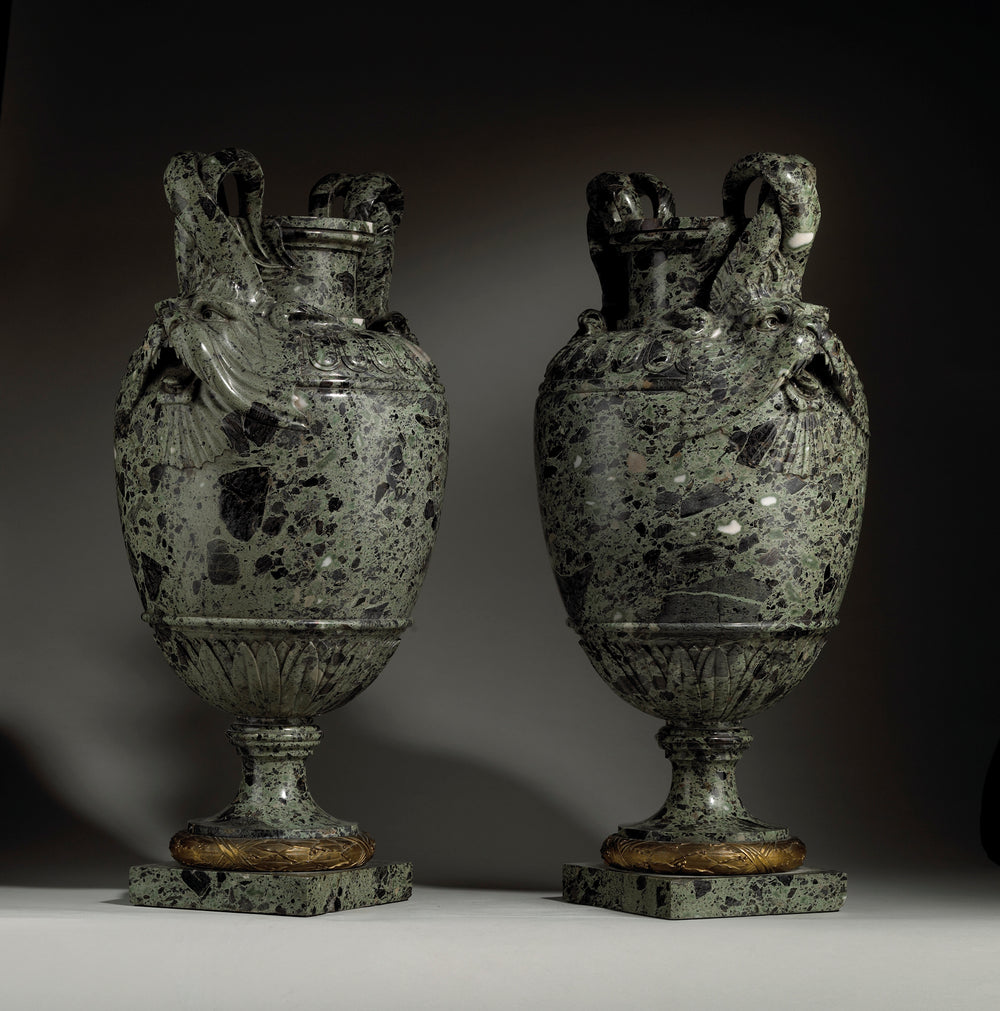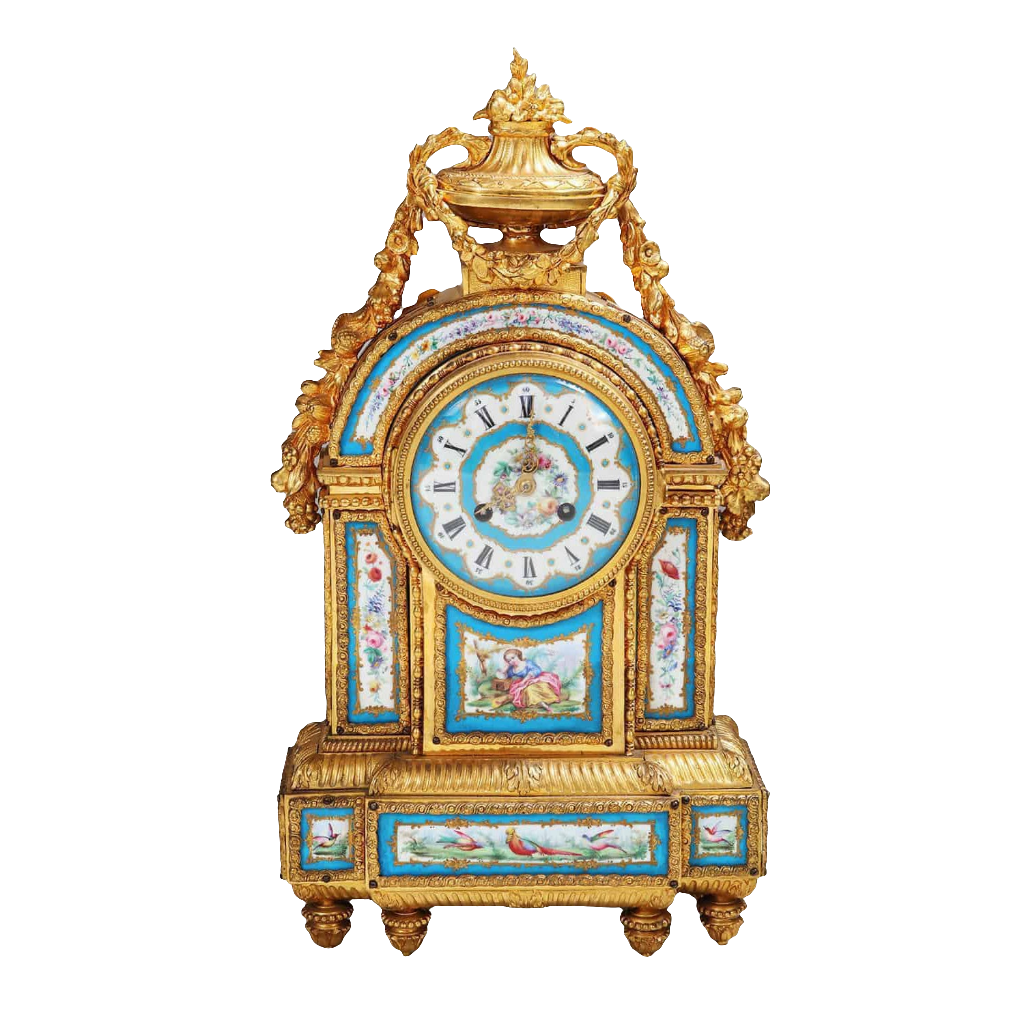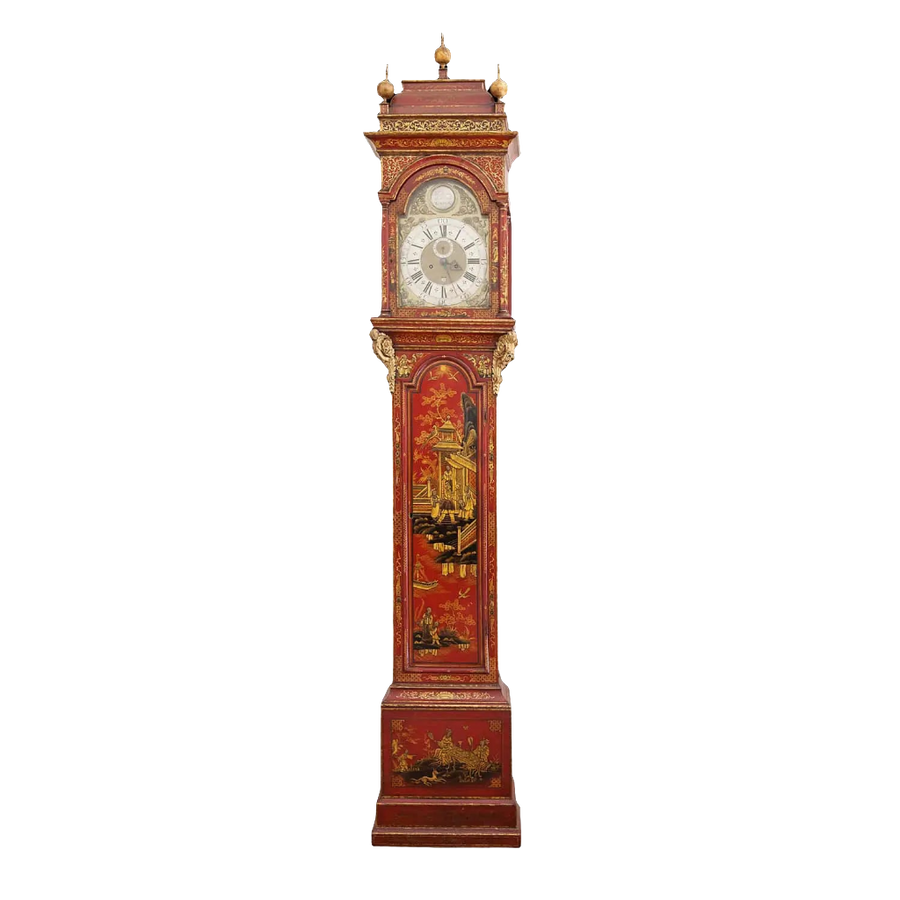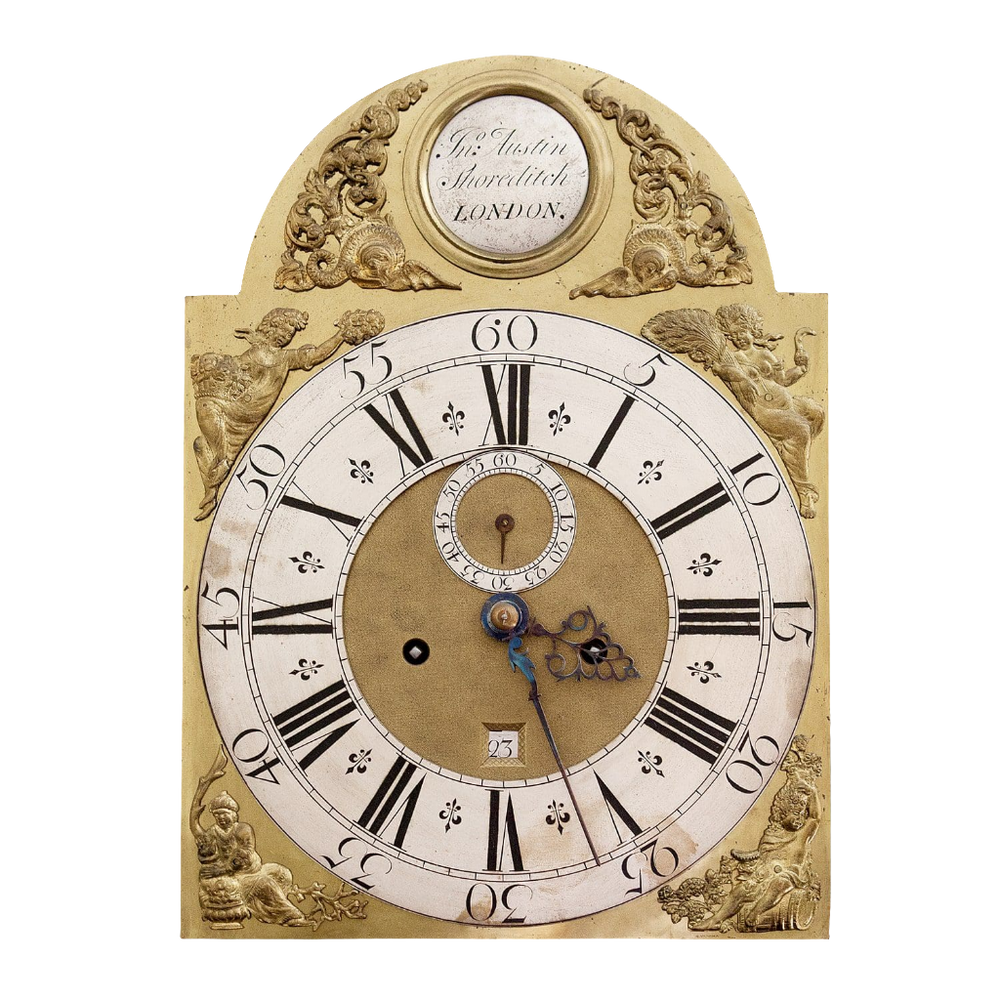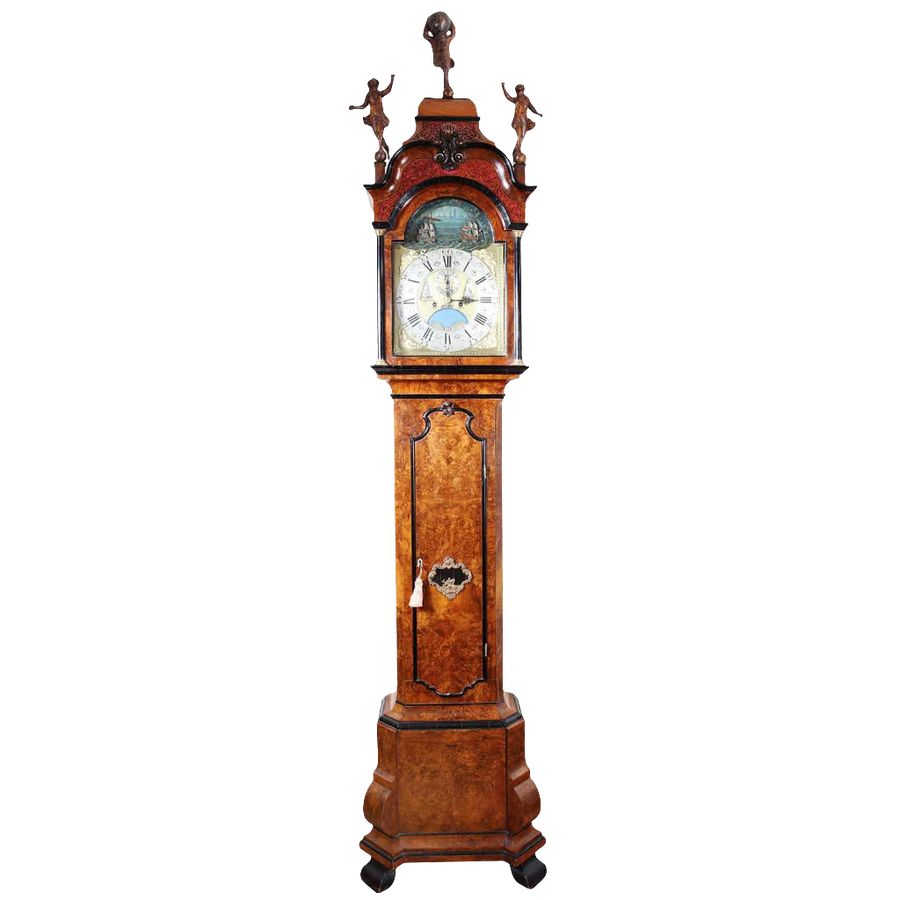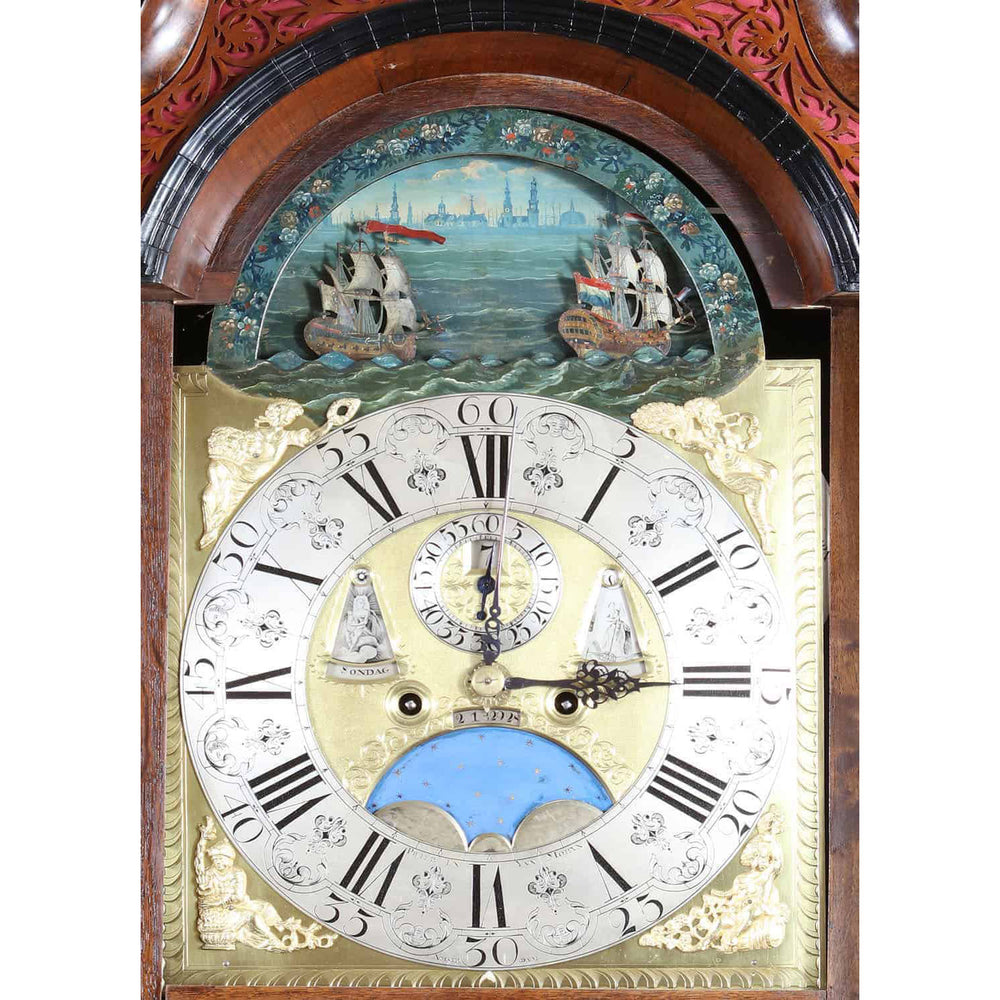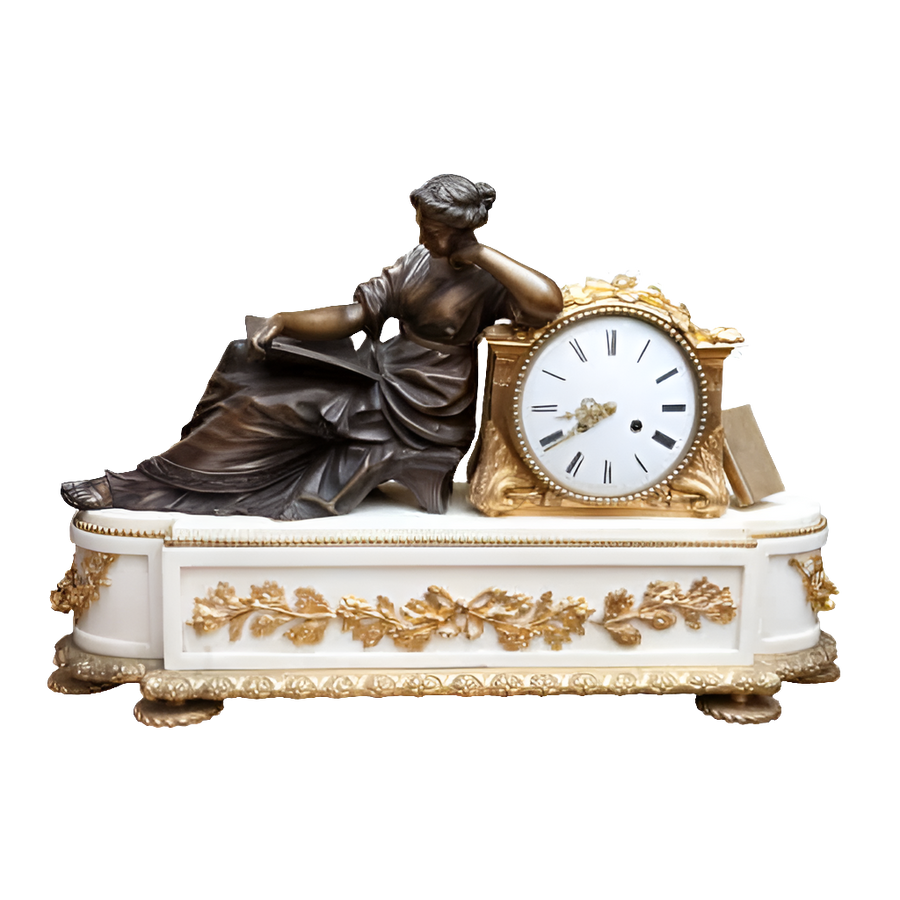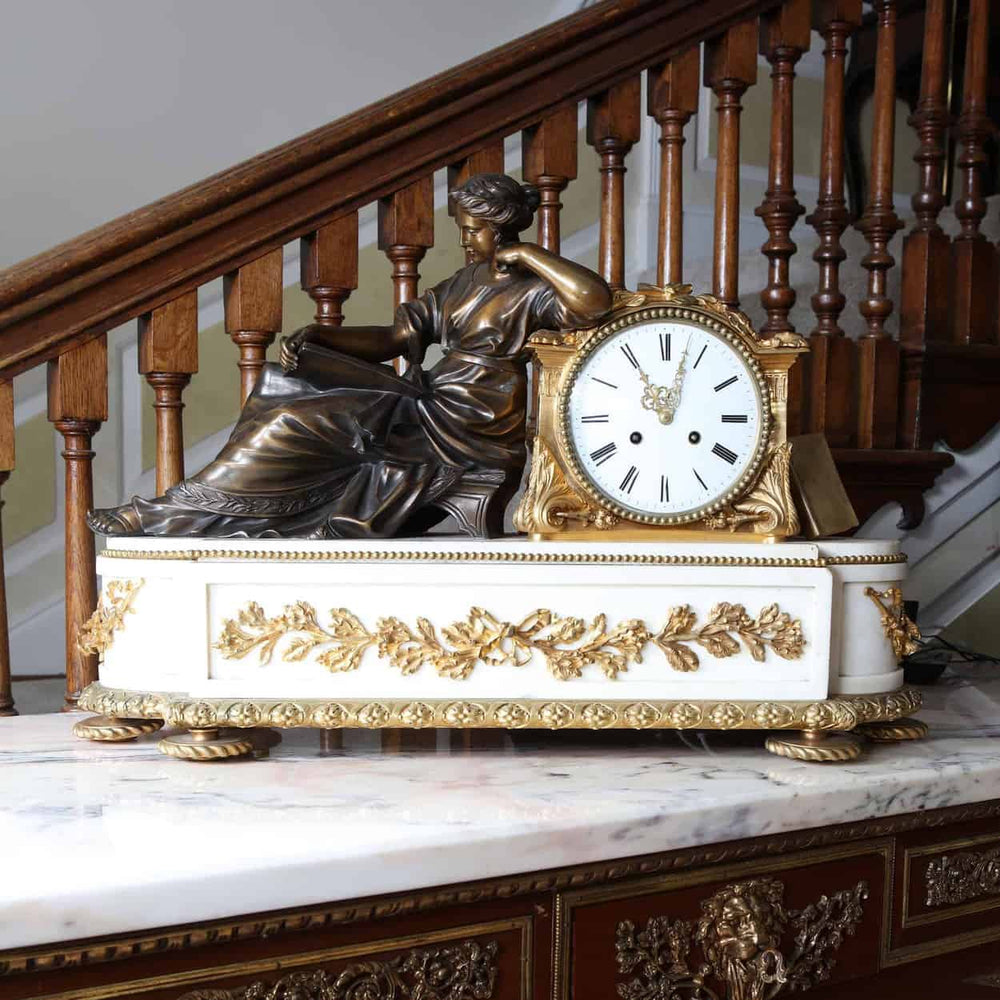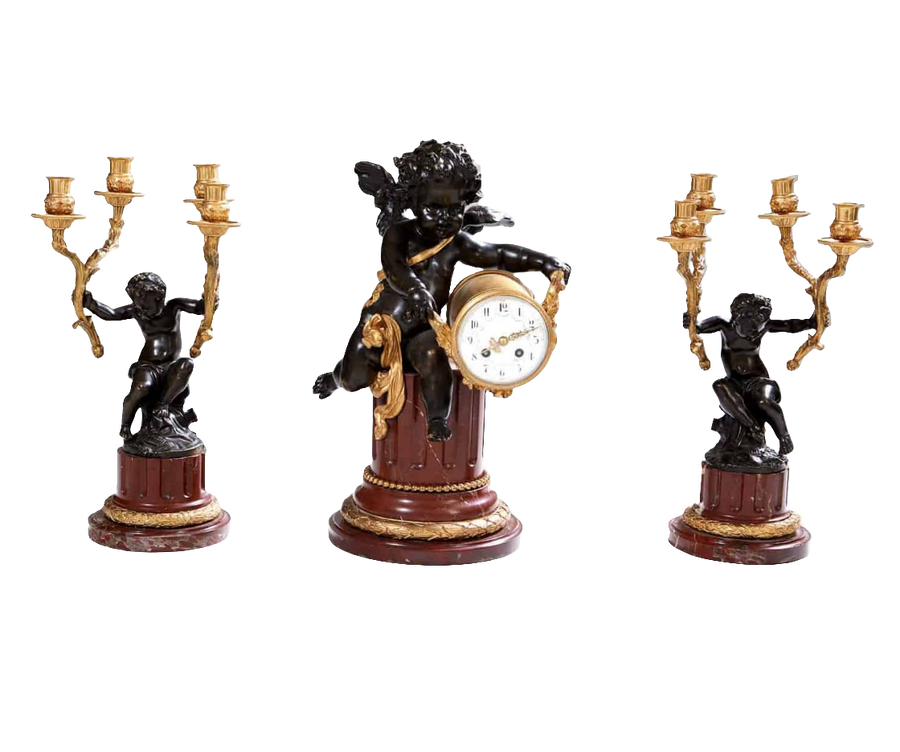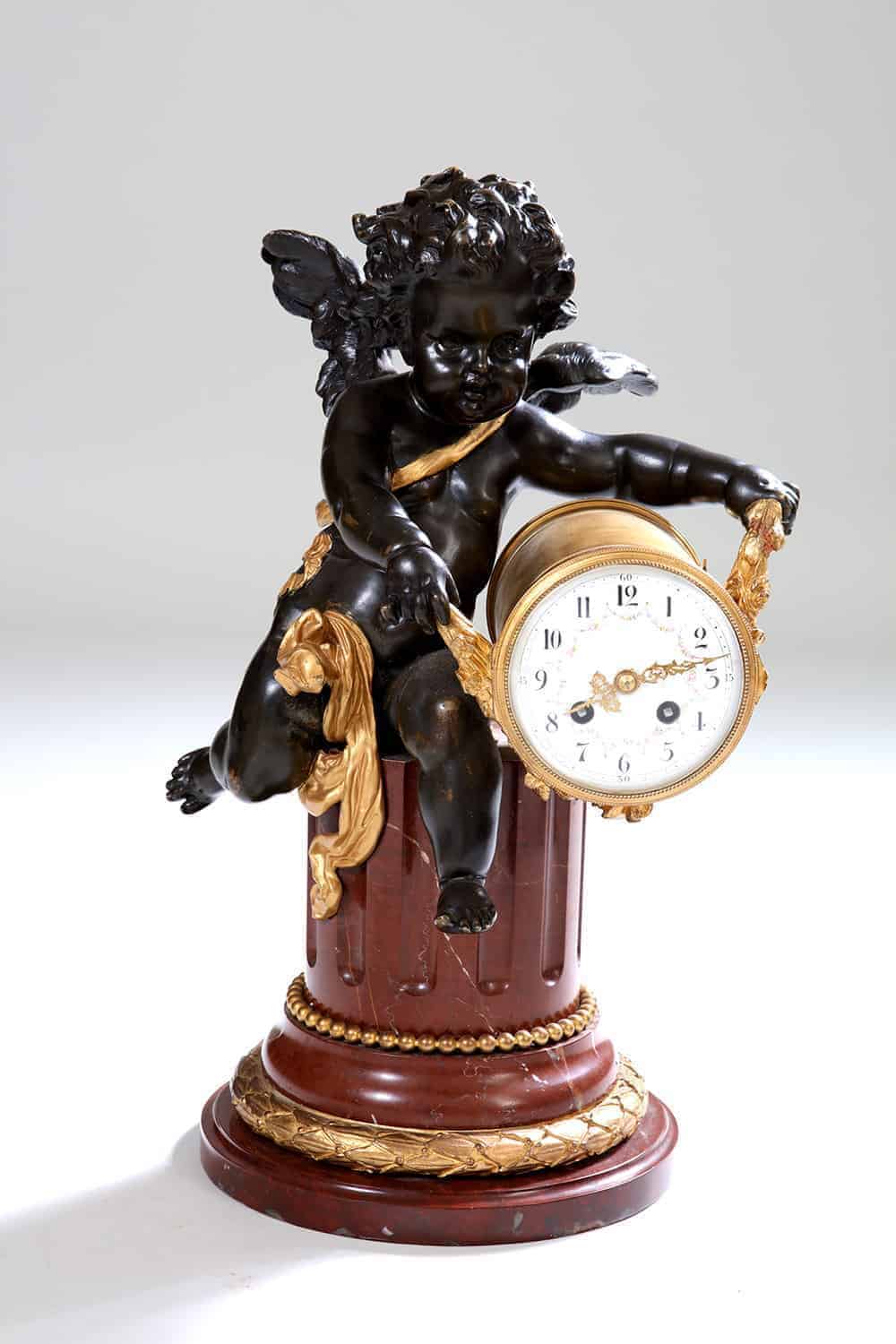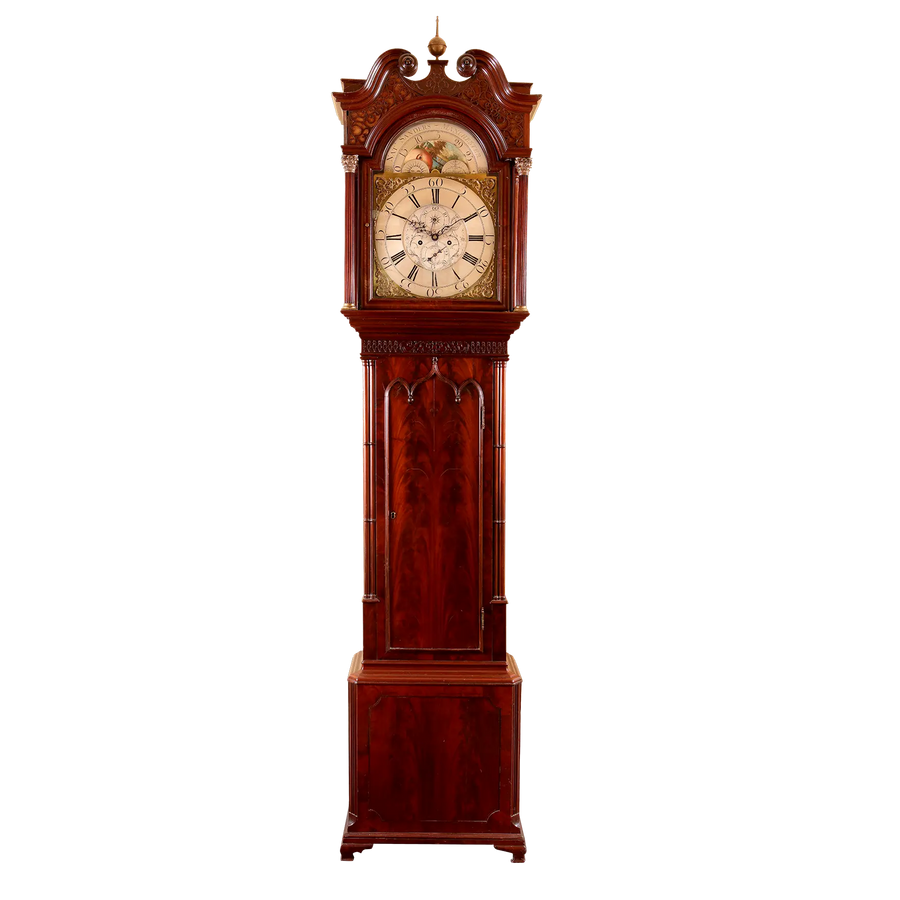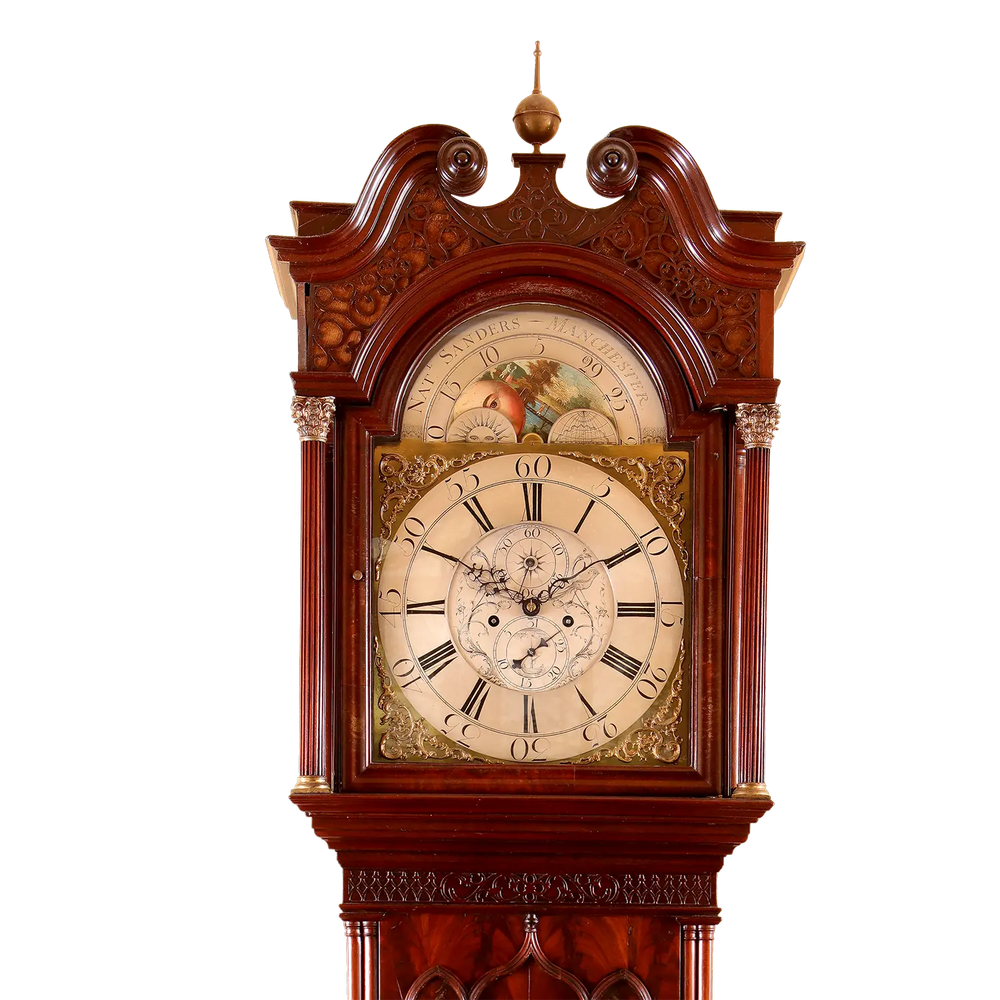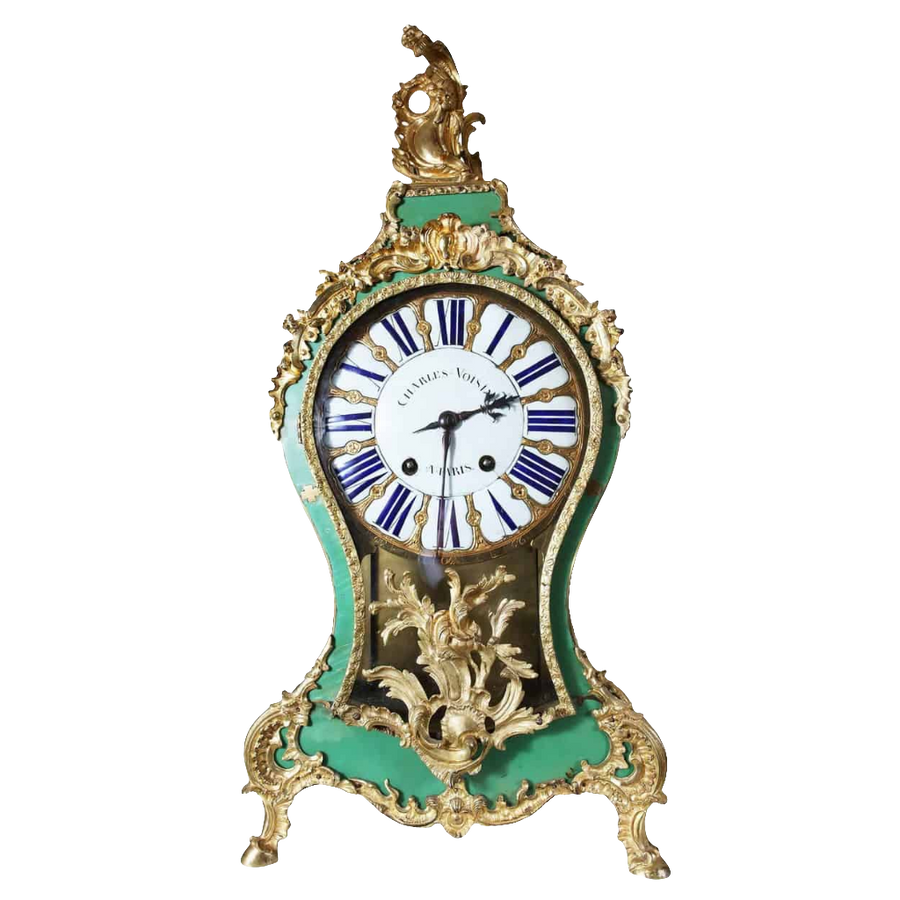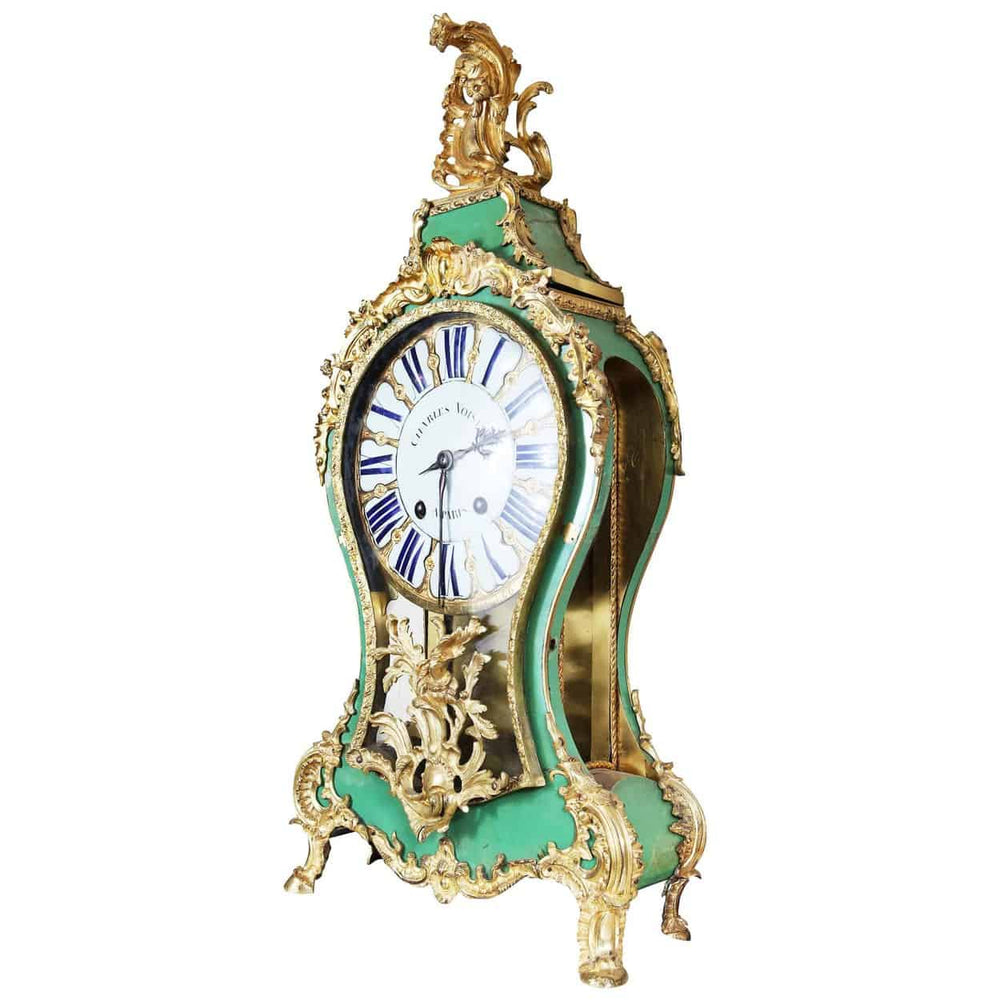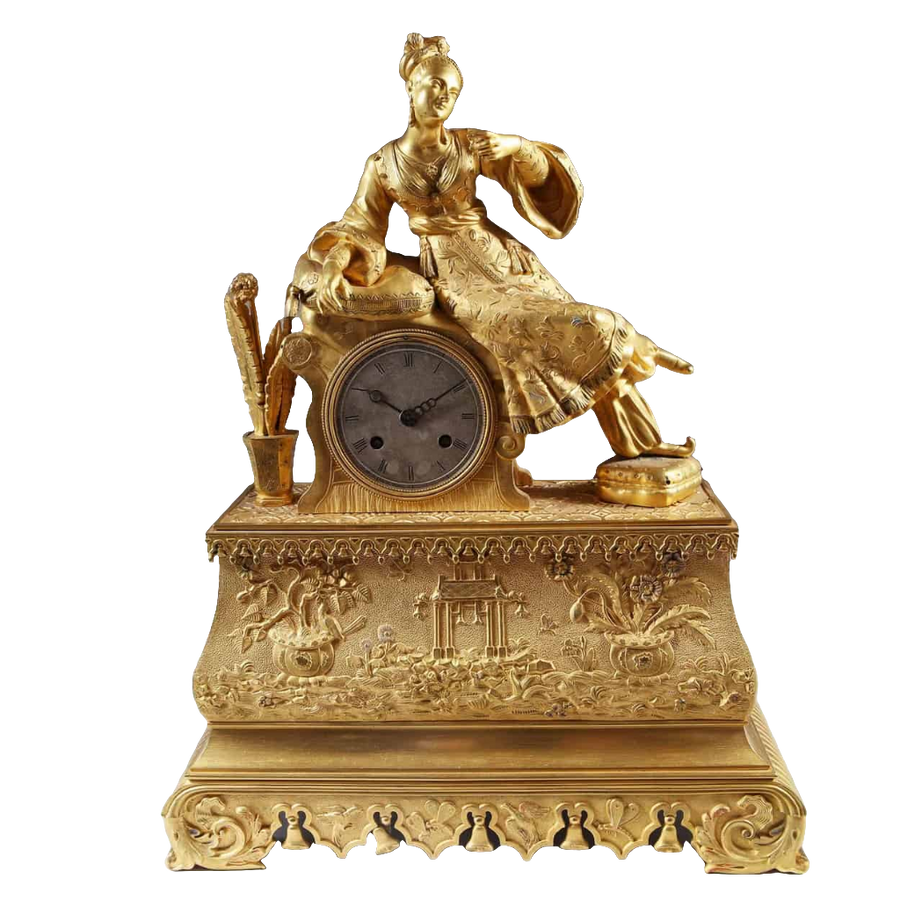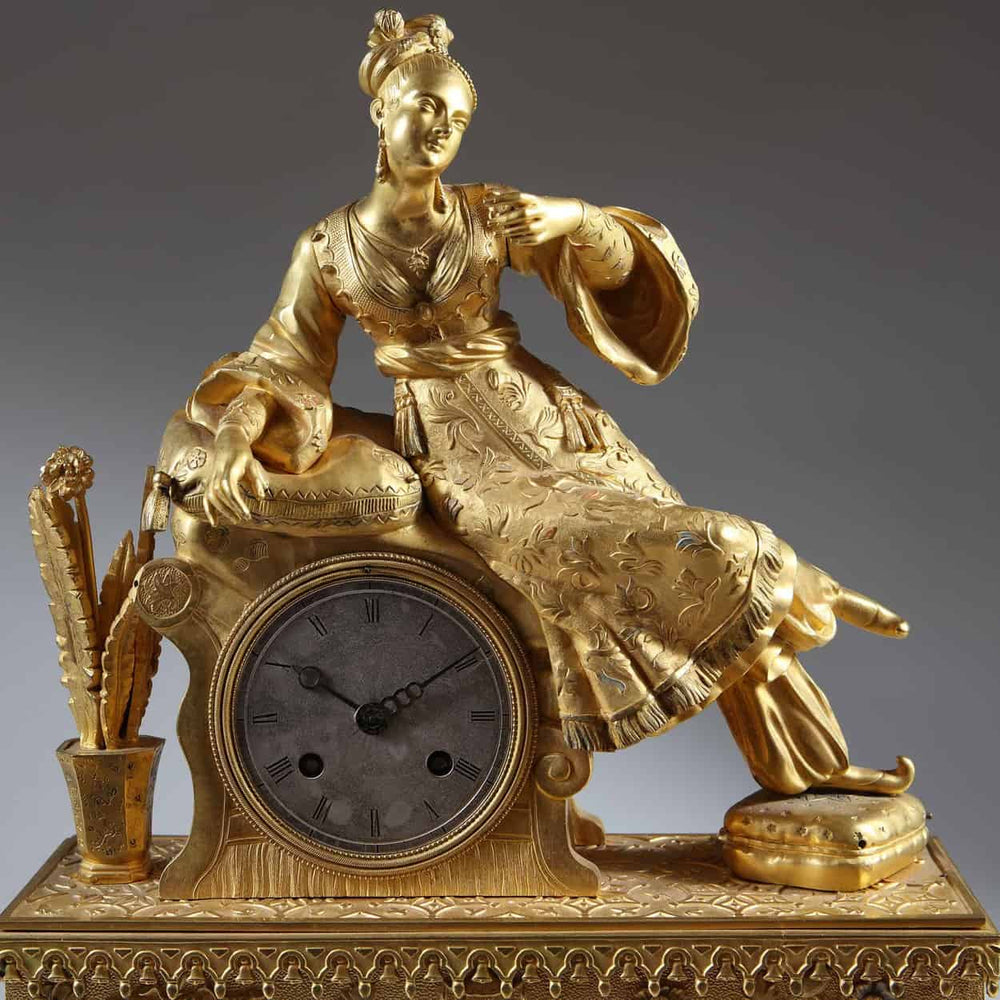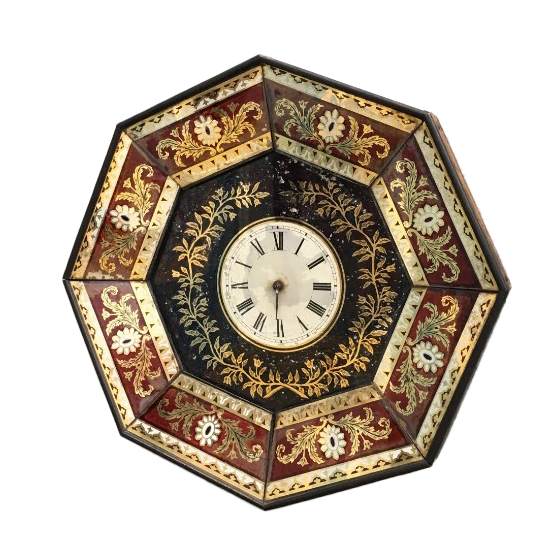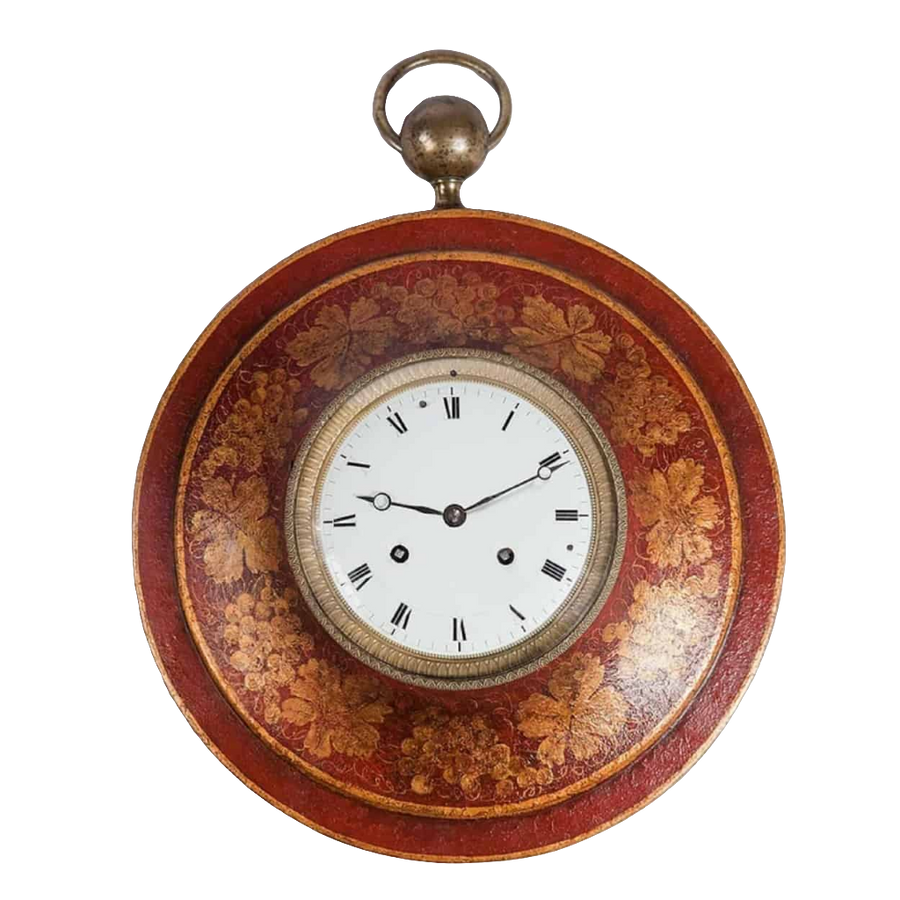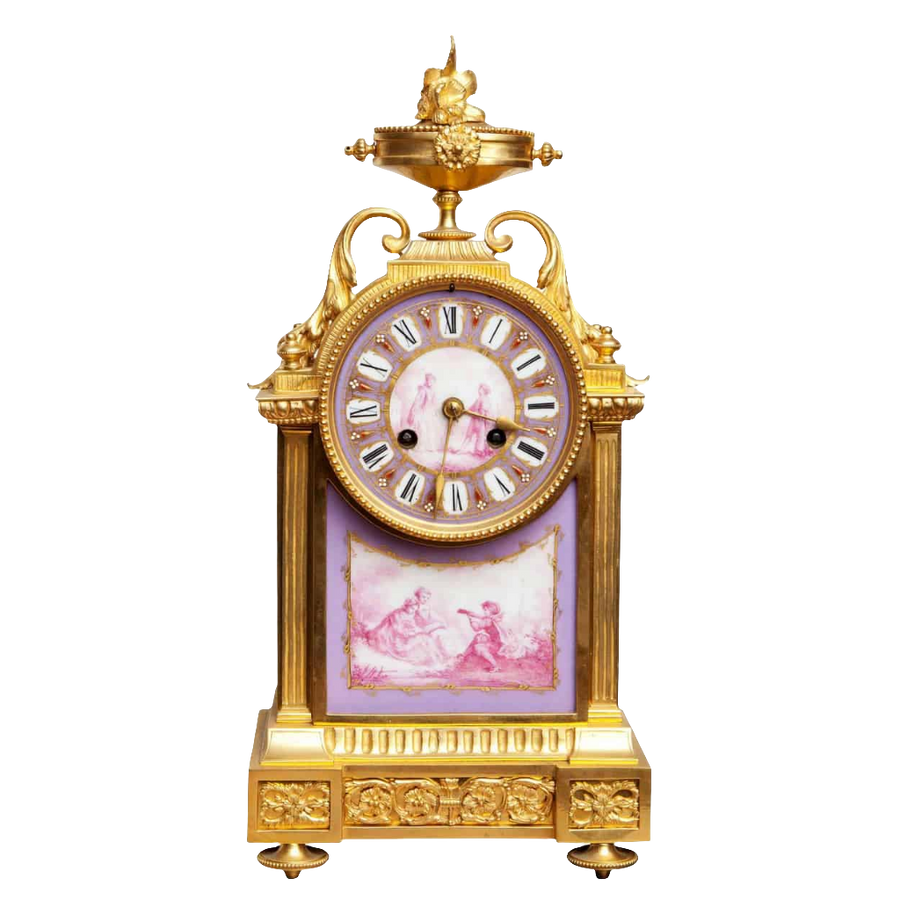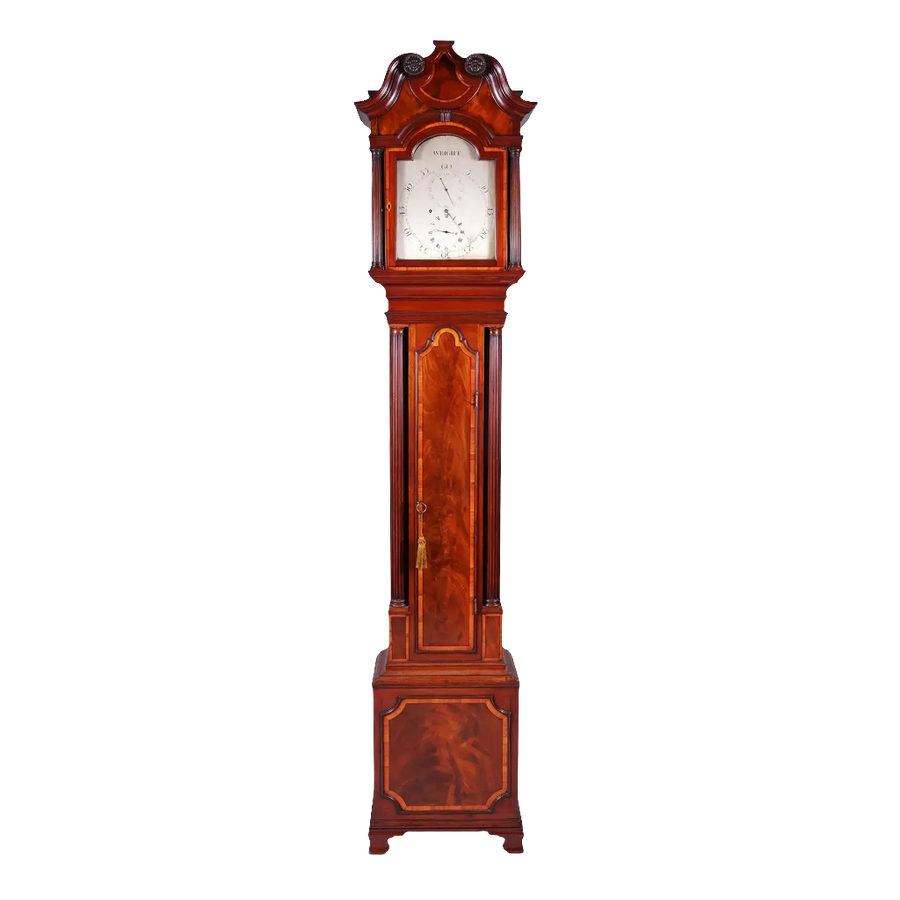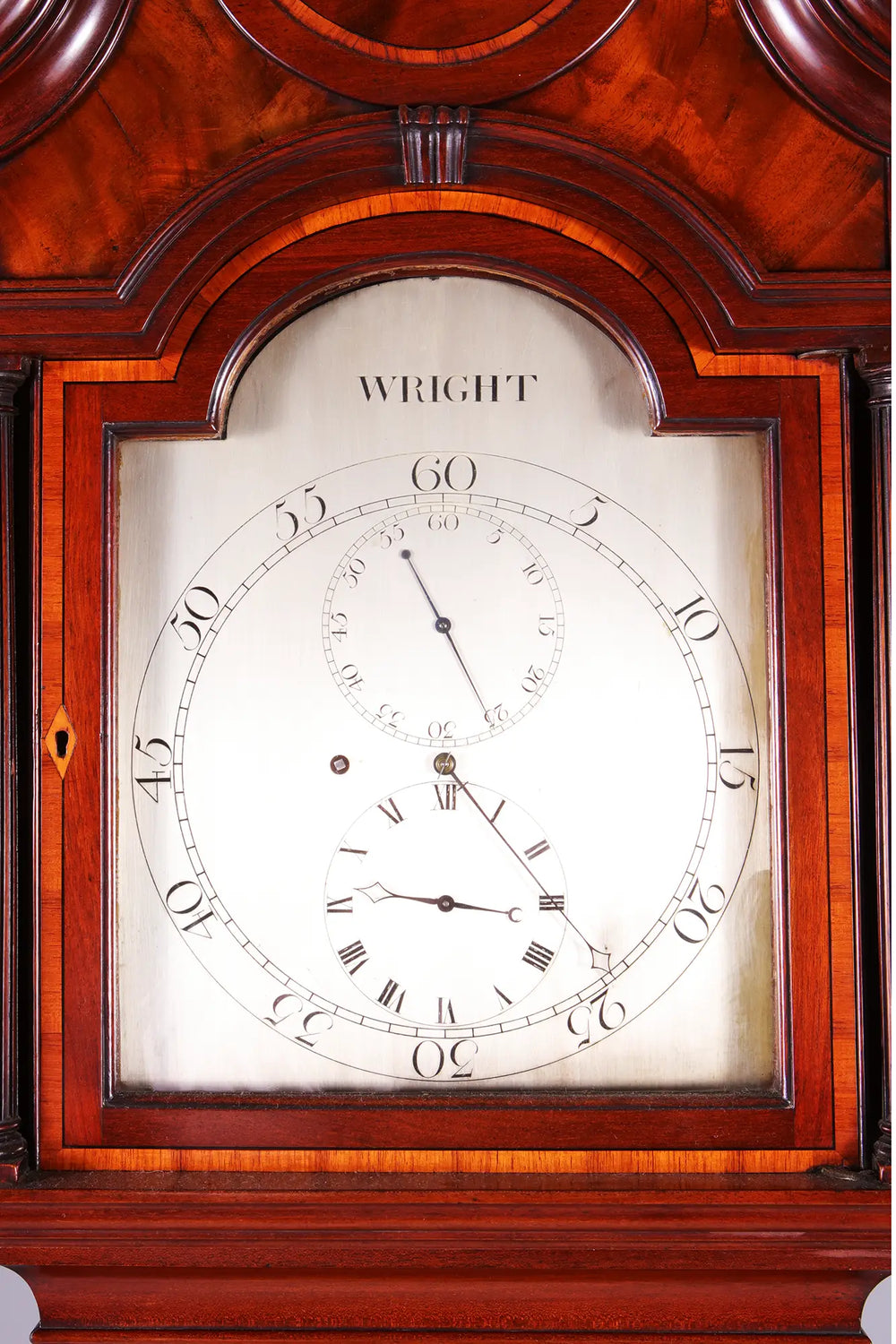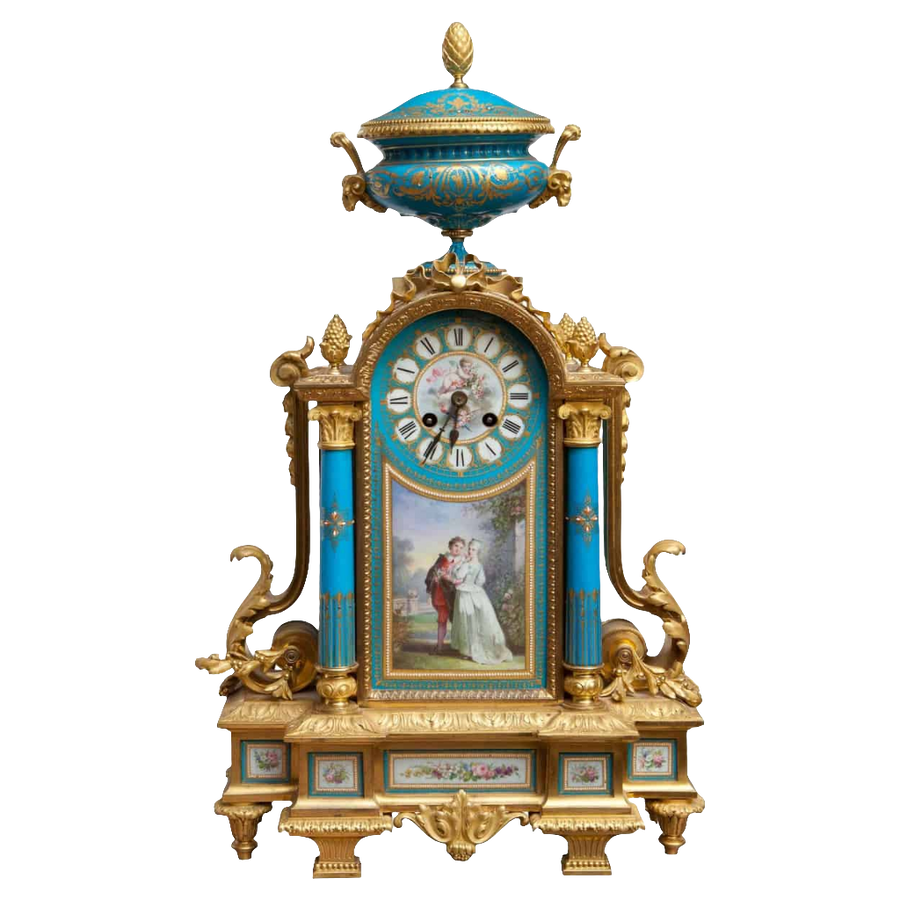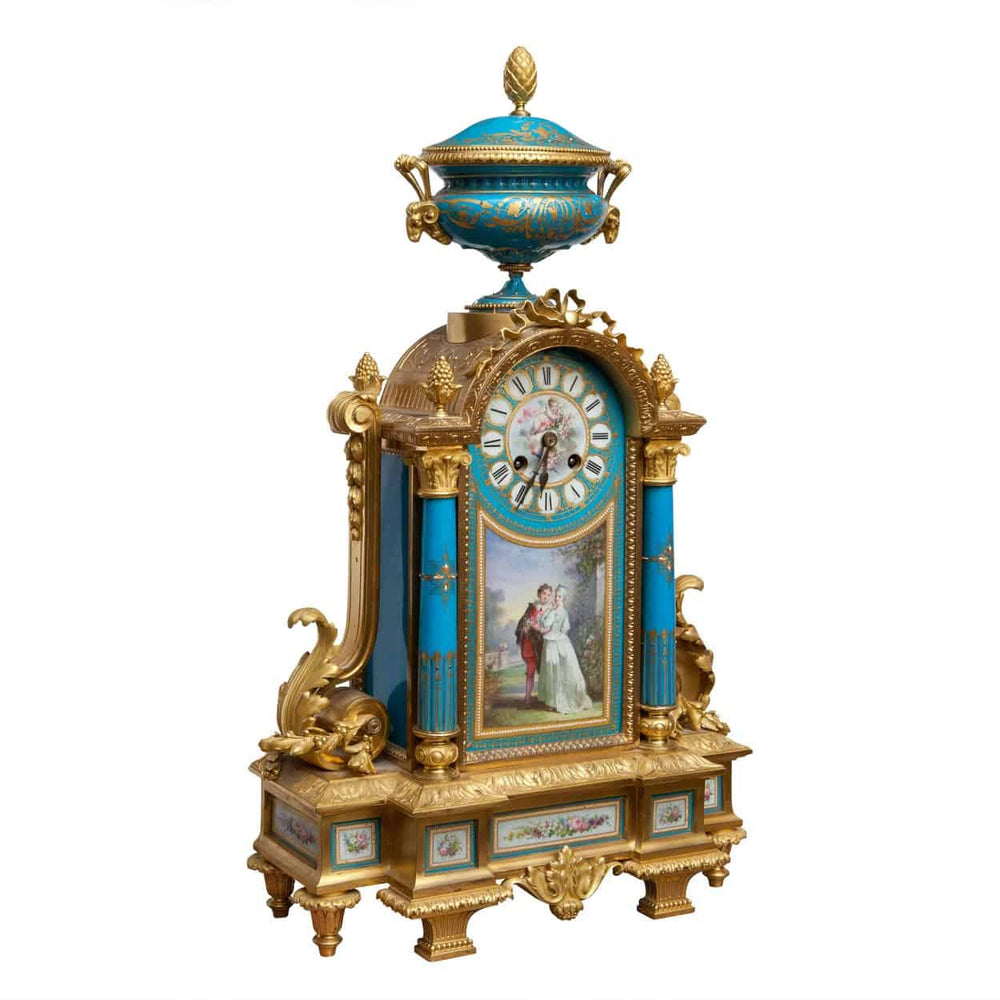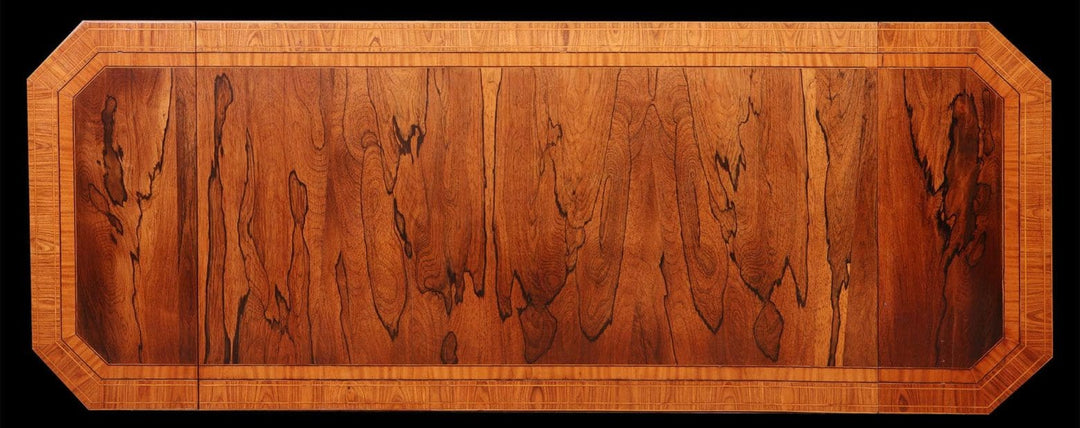The Art of Measuring Time
At Nicholas Wells Antiques, we are proud to present a remarkable collection of antique clocks and scientific instruments. In today’s world, where a glance at a phone reveals the hour, antique clocks remind us of a time when mechanical genius and aesthetic beauty were inseparable. Each piece is both a scientific achievement and a decorative work of art, embodying the craftsmanship and ingenuity of Europe’s finest horologists.
From the grandeur of longcase clocks to the elegance of French ormolu garnitures, these timepieces are more than functional objects — they are monuments to precision engineering and artistic design that have stood the test of time.
Highlights of the Collection
-
Austin of Shoreditch Longcase Clock – An exceptional English clock of refined design (£45,000).
-
Pietre & Jan Morjin Dutch Longcase Clock – Mid 18th-century burr walnut masterpiece (£35,000).
-
Napoleon III Ormolu & Sèvres Porcelain Clock Set – French opulence circa 1870 (£28,000).
-
Fine French Neoclassical Mantel Clock – Gilt bronze and marble, late 19th century (£22,900).
-
John Ellicott Bracket Clock – London, mid 18th century, ebony and gilt bronze (£22,000).
-
Rouge Griotte Marble French Garniture Clock – Elegant French craftsmanship (£22,000).
-
Charles Voisin Louis XV Bracket Clock – Green horn veneer and gilt bronze mounts (£9,000).
-
George III Mahogany Longcase Clock by Edward Gatton – An English classic (£8,500).
-
Cupid & Psyche Gilt Bronze Mantel Clock – Early 19th-century French romanticism (£8,500).
-
Lord Byron Gilt Bronze Mantel Clock – Napoleon III period with literary subject (£4,500).
-
Champlevé 8-Day French Carriage Clock – Blue enamel and mercury pendulum (£3,900).
Alongside these masterworks, we also offer Sevres porcelain clocks, scientific globes, marquetry bracket clocks, and Napoleon III garnitures, each selected for rarity, condition, and craftsmanship.
Why Collect Antique Clocks?
-
Engineering brilliance: From verge escapements to precision regulator movements, antique clocks showcase early horological mastery.
-
Artistic beauty: Cases in marble, ormolu, ebony, or exotic veneers often rival sculpture and furniture in their artistry.
-
Cultural resonance: Clocks reflected status, taste, and technological achievement in every era from Georgian England to Napoleonic France.
-
Timeless appeal: Still functional today, antique clocks provide rhythm, atmosphere, and presence in interiors.
Frequently Asked Questions (FAQ)
What types of antique clocks do you offer?
Our collection includes longcase clocks, mantel clocks, carriage clocks, bracket clocks, and clock garnitures, ranging from the 18th to 19th centuries.
Do the clocks still work?
Yes. Most retain working mechanisms and can be serviced for reliable timekeeping. Many collectors enjoy their functional as well as decorative qualities.
Which makers are represented?
Important names such as John Ellicott, Charles Voisin, Pietre & Jan Morjin, and leading French ateliers are represented in our collection.
What materials are used?
Cases range from marble, ormolu, ebony, horn veneer, porcelain, and gilt bronze, often with enamel or jewelled details.
Can antique clocks be used in modern homes?
Absolutely. A Georgian longcase or a French ormolu mantel clock makes a striking focal point in both traditional and contemporary interiors.
Do you offer international shipping?
Yes. We arrange worldwide delivery through fine art shippers, fully insured and packed to museum standards.
✨ Explore Nicholas Wells Antiques’ Clocks & Timepieces – where mechanical mastery meets timeless beauty, and every tick tells a story of craftsmanship and culture.




